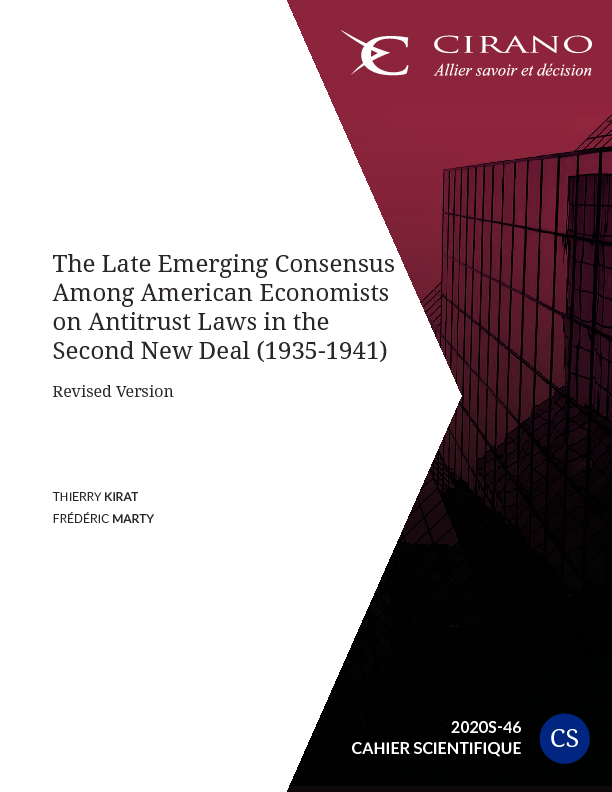The Late Emerging Consensus Among American Economists on Antitrust Laws in the Second New Deal (1935-1941) (Revised Version)
This paper presents the late convergence process from American economists that led them to support a strong antitrust enforcement in the Second New Deal despite their long-standing distrust toward this legislation. The paper presents the path from which institutionalist economists, on one side, and members of the First Chicago School, on the other one, have converged on supporting the President F.D. Roosevelt administration towards reinvigorating antitrust law enforcement as of 1938, putting aside their initial preferences for a regulated competition model or for a classical liberalism. The appointment of Thurman Arnold at the head of the Antitrust Division in 1938 gave the impetus to a vigorous antitrust enforcement. The 1945 Alcoa decision crafted by Judge Hand embodied the results of this convergence: in this perspective, the purpose of antitrust law enforcement does consist in preventing improper uses of economic power.




